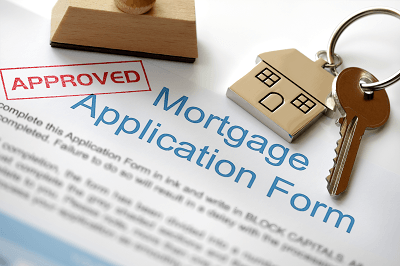
Determining your mortgage, or monthly house payment, is an important factor in deciding what kind of a house you can actually afford.
Mortgages are incredibly common.
65 percent of all homeowners in the US were paying off a mortgage in 2017.You can use our
mortgage calculator to help you run various situations before choosing the best route so you can live comfortably and financially secure in your new home.
Or you can try estimating your mortgage payment with this formula:
M = P [ i(1 + i)^n ] / [ (1 + i)^n – 1]
- M = monthly mortgage payment
- P = the principal amount
- i = the monthly interest rate
- n = the number of payments over the lifetime of the loan
What is a mortgage?
Before calculating your mortgage payment, you should have a good understanding of what a mortgage is.
In the broadest sense, a mortgage is a legal agreement between a lender and a borrower to get the money to buy or refinance property. This property is used as collateral until the borrower is able to pay back the funds, usually in monthly installments, until the debt is paid in full.
What costs are built into a mortgage payment?
There are a number of costs that be built into a monthly mortgage payment. For the purpose of simplicity, let's look at five components:
- Principal is the final purchase price of a home, minus any down payments. It's the amount you are asking to borrow from a lender. For example, if you're buying a home for $500,000, and put down $100,000 (20 percent of the purchase price), the principal would be $400,000.
- Interest is the amount charged by the lender for borrowing their money. An interest rate is expressed as an annual percentage.
- Property taxes are paid by a homeowner to their local government. The amount is determined by a local government official based on the assessed value of your property, including the home and the land it sits on.
- Mortgage insurance is required when you buy a house and made a down payment of less than 20 percent. It assures the lender that they will be reimbursed in the event you fail to pay back your loan.
- Homeowners association fee (HOA) is paid to an organization that assists with the maintenance, improvements, and communal amenities of your house and housing development.
What determines your mortgage's interest rate?
To dive a little deeper into calculating your overall mortgage payment, it’s a good idea to look at what factors determine your mortgage interest rate. Not all rates are the same, and a fraction of a percent on your interest rate can save your thousands of dollars.
So it definitely pays to prepare, consider your options, and compare rates from different lenders. There are seven factors that lenders consider when calculating an interest rate.
- Lenders look at your credit scores to determine how reliable you'll be in paying back your loan. In general, a higher credit score will receive a lower interest rate, and a lower credit score will result in a higher rate. Before you start shopping for a mortgage, you should check your credit report, and work with a financial advisor to improve it.
- A lender might offer a different interest rate depending on the county and state you plan to buy a home in.
- You might find yourself paying a higher interest rate on a large loan. Remember, your loan amount is the home price plus closing costs, minus your down payment.
- In general, the more down payment you offer, the lower your interest rate will be.
- A typical mortgage loan term is 15 or 30 years. Generally, the shorter the loan term, the lower your interest rates will be, as well as the overall costs. Shorter terms typically mean higher payments.
- The interest rate type can be fixed or adjustable. A fixed rate will not change over time, but an adjustable rate will go up or down each period depending on the market. Your interest might be lower with an adjustable rate, but it could increase later on.
- There are a few categories of loans which your lender can offer depending on your eligibility. These include conventional, FHA, USDA, and VA loans.
Are you buying too much home?
If you put the numbers into the equation and almost fainted at the result, you might need to take a step back and ask yourself some questions.
Am I putting in enough of a down payment? Remember, a down payment of less than 20 percent can result in paying mortgage insurance on top of everything else.
Is the loan term right for me? A 30-year loan will lower your payment, but you'll be paying more interest over the life of the loan. Conversely, a 15-year loan will reduce the amount of interest you're going to pay, but your monthly payment will be higher.
Is an adjustable rate mortgage a good option? You will want to consider how much your mortgage payment can change over the course of an ARM, as well as the period of time in which the mortgage will be at a fixed rate.